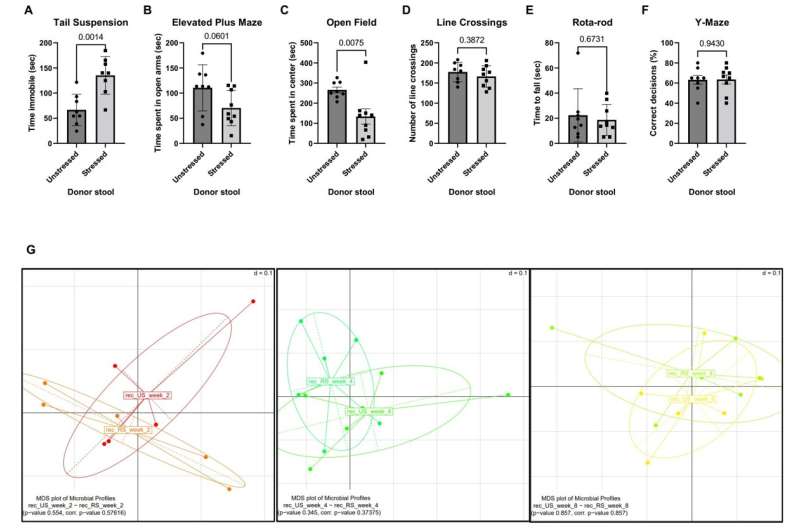What if some stress actually protects your body?

Stress has been linked to all sorts of serious health issues, from insomnia to high blood pressure, obesity and even heart disease. But it's generally acknowledged that some stress can also be helpful, like when someone's chasing a work deadline.
But what if some level of stress can actually protect the body?
A new study by researchers at the Case Western Reserve University School of Medicine, with findings published in Proceedings of the National Academy of Sciences, suggests the immune system may benefit from a measure of stress.
"This one of the few studies showing that chronic stress could have beneficial effect instead of negative effect," said senior author Fabio Cominelli, professor of medicine and pathology and associate dean for program development at the School of Medicine. "This was a little bit of a surprise for us."
The study
Psychological stress has been found to make symptoms of inflammatory bowel disease (IBD) worse. Similarly, intestinal tertiary lymphoid organs (TLOs)—immune cells that form in response to chronic inflammation or injury—are associated with more severe inflammation. While the role of TLOs and stress in IBD is debated, TLO formation in the context of stress hadn't been studied.
In this study, after 56 days of stress, mouse models with Crohn's disease-like ileitis showed significantly increased TLO formation in the colon as an immune response. However, the stress did not significantly increase small or large intestinal inflammation.
The microbiome of the stressed mice was compositionally unchanged from control. However, due to inherent shortcomings in how the microbiome is measured, researchers decided to perform a fecal microbiome transplantation. While mice receiving the microbiome of stressed mice had the same behavioral phenotype as their donors, transplantation did not increase TLO formation.
Instead, stress was found to increase production of the cytokines IL-23 and IL-22. These two cytokines are a part of the TLO formation pathway. IL-22 plays a protective role in wound-healing and tissue-regeneration and can have both anti-inflammatory and pro-inflammatory responses.
Stressed mice deficient in the receptor for IL-23 had increased IL-23, but not IL-22, and couldn't increase TLO formation. This effect was reversed when IL-22 was administered.
Given the association of TLOs with other diseases, the researchers reasoned that stressed mice would be more susceptible to a "second hit" in the colon. However, compared to unstressed mice, stressed mice actually exhibited less severe inflammation after this "second hit."
"Our findings demonstrate that psychological stress induces formation of TLOs by increasing the production of IL-23," Cominelli said. "Furthermore, the stressed mice were protected after a 'second hit,' suggesting TLOs may function to improve the mucosal barrier."
Typically, stress is associated with more severe inflammation. However, not all patients that experience stress have worse disease. Therefore, this study has translational significance because it demonstrates a condition where stress has a beneficial effect, the scientists said.
"What we discovered it that chronic daily stress for six weeks was beneficial against a second injury. The mouse models that were stressed were actually protected," Cominelli said. "We showed they had stimulation of the immune system, which protects against intestinal inflammation. What needs to be studied is whether this may translate to other diseases and injuries."
"So do I want to be stressed? It all depends on the definition of stress. 'Stimulated' is a better term," Cominelli said. "The message is that a little bit of stress is good in your life, but you want to be stressed in the right way."
More information: Adrian Gomez-Nguyen et al, Chronic stress induces colonic tertiary lymphoid organ formation and protection against secondary injury through IL-23/IL-22 signaling, Proceedings of the National Academy of Sciences (2022). DOI: 10.1073/pnas.2208160119



















